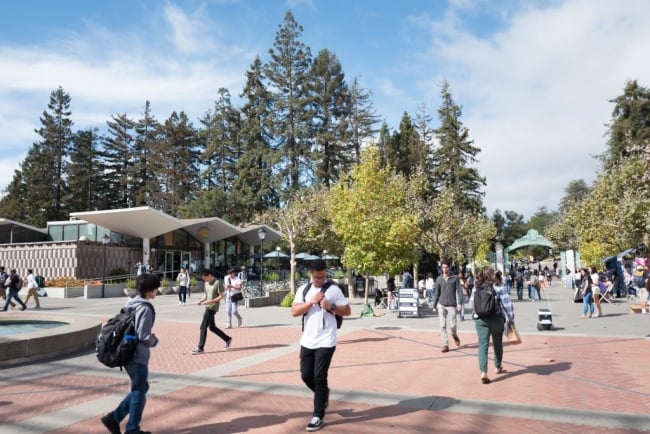You have /5 articles left.
Sign up for a free account or log in.

Orientation for new commuter students can help connect learners to resources and address challenges they may face while enrolled.
SmithCollection/Gad/Getty Images
Data from the most recent National Postsecondary Student Aid Study found only 15.6 percent of all undergraduate students live on campus, and only 12.9 percent of all first-year students reside on campus, meaning the majority of incoming students are commuting to campus in some capacity. Even among four-year institutions, which are more commonly associated with the traditional college experience, just 50 percent of first-year students live on campus.
To accommodate commuter students’ needs, colleges and universities have modified their orientation programs and established specialized programming, getting students plugged in to campus in different ways.
Inside Higher Ed compiled some considerations for higher education practitioners to create stronger connections for commuter students at the start of the academic term.
A day on campus: A commuter orientation can:
- Address difficulties. Commuter students, as opposed to their residential peers, are more likely to face hurdles navigating campus, such as parking, identifying study spaces or dining. College leaders can get ahead of these concerns by having proactive communication with students during orientation. The University of Miami requires all commuter students to participate in a special orientation, Great Start, to preview their daily life on campus and learn to make the most of their college experiences.
- Highlight resources for help. Many colleges and universities offer dedicated commuter centers that include lockers, microwaves, fridges or computers to support learners throughout the day. Washington & Jefferson College hosts a commuter-only dinner in the Commuter Club to boost student awareness of the facility and introduce fellow students.
- Create peer connection. Peer leaders also help connect commuters to their classmates. At the University of New Haven, student employees called commuter assistants serve as mentors to individuals and commuters as a cohort to provide resources and build a sense of community. Rather than bringing commuter students to campus, the University of Maryland, Baltimore County gives students the chance to get away and build connections at the First-Year Commuter and Transfer Retreat, focused on peer connection and fun before the start of the year.
Some residential colleges have overnight orientation experiences prior to the start of the term, but college leaders should also establish opportunities for commuter students that do not put a barrier on their participation, such as Loyola University Chicago’s commuter student orientation, a one-day event. Ohio State University provides an online Q&A session exclusively for commuter students, giving them the opportunity to connect without transporting themselves to campus.
By the Numbers
A fall 2023 Student Voice survey from Inside Higher Ed, conducted by College Pulse, found 54 percent of all undergraduate student respondents attended an in-person orientation experience, and an additional 10 percent attended a hybrid orientation. Only 36 percent of two-year students attended an in-person orientation experience.
Incentives can also make commuter orientations more exciting and engaging for participants. Miami University of Ohio provides food for all learners during the campus Commuter Center Prep Day, and the University of Scranton gives out special Commuter Day T-shirts to program participants.
Wraparound resources: Institutions can also implement longer-term programming that helps connect students to campus and instill a sense of belonging in the community.
At the University of Minnesota, first-year students are invited to participate in the Commuter Success Program, which creates a cohort-based experience that meets over several weeks for meals. Through the program, commuters regularly meet with peers, gain mentorship and connect to college support resources.
Commuter students can feel disconnected or left out of certain experiences, but specialized events and groups may mitigate those feelings. Fordham University has a Commuting Students Association and Commuter First-Year Mentor program that aid in the social health of learners who live off campus.
Do you have a college experience tip that might help others encourage student success? Tell us about it.




